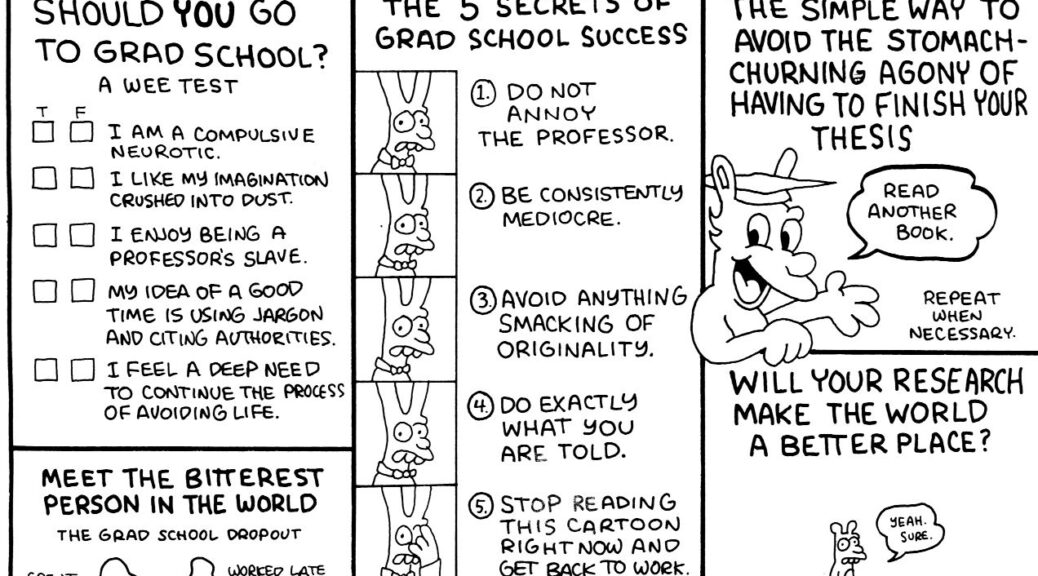We are approaching crunch time. Two months left in the semester. I have assigned research papers, and I hope the students are working on them. It is such a difficult thing to do, harder even than the students know. To start from nothing, and over the course of 15 weeks read enough to frame a meaningful question, to dive into secondary works that might be difficult for students to read, and, of course, primary sources, which can be extremely challenging. I tell them how difficult the process is. I tell them, half jokingly, because we give ourselves seven years to write something meaningful and they have just a couple of months. In a way, we hold our students to standards higher than we hold ourselves, especially as the demand on faculty to publish has become, sadly and apparently, old school. So some advice. This is not exhaustive. You might not like it. You might find it really helpful. If you want, place your own suggestions in the comments. I would love to read about how you help your students do this difficult work.
- All historical writing begins with a question. All good historical writing answers that question. All good historical writing contains a thesis or an argument. A sound thesis will provide an answer to the question under investigation briefly, in a sentence or two. The rest of the text, whether it is a term paper, a dissertation, an article or a book, will demonstrate how that one sentence thesis is true.
- Some questions are better than other. Ideally, you will ask a new question, or answer an old question in a new way, or apply a broad question to a more narrow case where you can become an expert over that some piece of a larger whole. We value your perspectives and trust your creativity. When we read your papers, we hope to learn from you.
- All good historians read the footnotes or endnotes. Indeed, we are the people who read the notes. We take notes on the footnotes, making sure we record sources, primary and secondary, that may be useful to us in our own work. We like footnotes to a degree that it makes some people uncomfortable.
- All good historians are interdisciplinary, or willing to become interdisciplinary. Historians are willing to do the grunt work for the other social science and humanities disciplines that are related to our fields.
- Historians question nearly everything about the work of other historians. Historians are prone to disbelief—we are critical readers, and we should be ready to question all assumptions.
- Historians are relentless in their quest for sources, secondary and primary, and they recognize that the work of gathering sources and creating a bibliography is one that is never completely finished.
- No, you do not yet have enough sources.
- When your professor tells you to check out one source or another, you are obligated to do so. It is not an option. If you look at that source, and do not know how to make sense of it, it is your responsibility to learn, or to ask for help from your professor or from a library professional who might assist you. Those of us who are decent people love to talk to you about sources. Some of us especially love when you can explain why a source we recommend to you is not helpful. See? You are teaching us new stuff.
- Do not quote secondary sources unless your source says something so astoundingly clever that you cannot possibly do without it. Leave historians in the footnotes. Some academic disciplines are really into quoting scholars. “As Dirk Broadaxe said in Logjam, his seminal monograph about lumberjacks…” and so on. It’s pretentious, does not read well, and, you know, footnotes. They are right there at the bottom of the page.
- History is a discipline. There are rules. Research papers should be formatted according to standards included in the Turabian Manual. If you do not know what the Turabian Manual is, you must learn. Even if it seems to you that it is stupid. We are members of an undisciplined discipline, but you need to conform to some of these base level expectations. You must take the time to learn to format your footnotes and bibliography according to Turabian’s standards. This is not optional. It is required.
- As Collingwood said, (see above, No. 9), “nothing capable of being memorized is history.”
- Treat words like they cost you money.
- People with bad grammar hate America.

